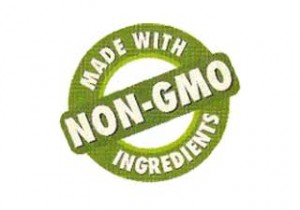WakingTimes September 19 2013
“USDA Organic” is simply a marketing term those who take government ethics at face value. The goal has always been to increase agricultural sales, not promote organic farming. The public seems to confide in this label through sheer ignorance. The National Organic Program (NOP) which governs the “USDA Organic” label has no interest in organic farming, improving soil, quality of the produce, or factors that pollute the environment. In another blow to their organics program that will further downgrade consumer confidence, the USDA announced this week that the agency has changed the process for exempting otherwise prohibited substances (such as synthetics) in food that carries the “organic or “made with organic” label. This decision makes it easier to continue use of artificial ingredients and substances, undermining integrity of the organic label.
According to the National Organic Program, the organic label indicates that the food or other agricultural product has been produced through methods that integrate cultural, biological, and mechanical practices that foster cycling of resources, promote ecological balance, and conserve biodiversity. Synthetic fertilizers, sewage sludge, irradiation, and genetic engineering may not be used…until now.
Under the federal organic law and prior to the announcement, there was a controlled process for allowing the use of substances not normally permitted in organic production because of extenuating circumstances. Under the Organic Foods Production Act 7 USC 6517 (e) Sunset Provision, “No exemption or prohibition contained in the National List shall be valid unless the National Organic Standards Board has reviewed such exemption or prohibition as provided in this section within 5 years of such exemption or prohibition being adopted or reviewed and the Secretary has renewed such exemption or prohibition.”
Under the law, these exemptions are authorized for a five-year period, in order to encourage the development of natural (or organic) alternatives. The exemptions are required by law to expire, known as “sunset,” unless they were reinstated by a two-thirds “decisive” majority vote of the National Organic Standards Board (NOSB) and include a public review. While this is the law, USDA has said it will no longer operate the program in this manner.
USDA organics has been hijacked by big agriculture and their food scientists for some time. Senior food scientist Toby McDonald insists that the only way to protect the population is through current and modified sterilization techniques that will make food safe for all. “Current and modified practices including irradiation and pasteurization are extremely effective in reducing harmful bacteria and pathogens in the food supply,” he proclaimed. MacDonald says that as food demand reaches its climax, proper sterilization will be necessary at all levels.” An increase of 50 percent in food demand by 2030 will require more funding into food monitoring infrastructures so that all food with the potential to produce outbreaks can be properly sterilized to prevent those outbreaks,” he added.

 One group after another is denouncing the genetically modified poison on grocery store shelves, adding to the chorus of voices demanding real untainted food.
One group after another is denouncing the genetically modified poison on grocery store shelves, adding to the chorus of voices demanding real untainted food.